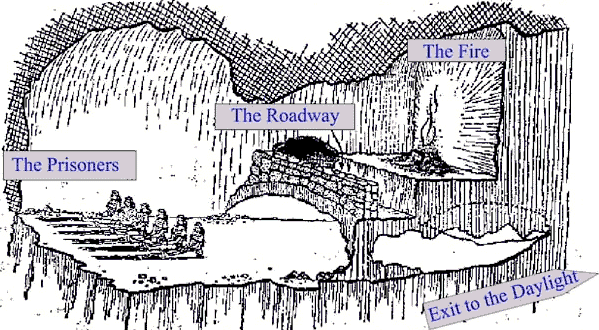Ah... this thread goes to fast! Let me respond to this:
''apparently not ALL concious thought, as I know most of the world believes in a god of some sort, and the more i look around at the world and start to understand it, the more i see the working of God's hand, and the impossibility of a flue creation
-Joe ''
By consciousness I mean something very different than what everybody thinks of as consciousness. Consider the biological imperatives behind all our actions and you see that we are not free, willing creatures, but rather machines controlled by, that is reacting to, external stimuli. By consciousness I mean free and willful thought that transends our ''waking state'', that state of man in which he belives he is conscious but he is really animal. I remind you of course that these ideas are of course not my own, and that the above is a second hand generalization of an of a highly credible philosophic tradition.
In response to another post:
'If the concept of deities is a cerebral creation of man than is not the concept of evolution also a creation of man?'
But of course! The thing is that religion doesn't take the creation of god my man into account, whereas science does so very thouroughly. All physics, chemistry, all hard sciences can proceed without philosophy, but are in the relm of philosphy dealt with as metaphysics. Metaphysics allows us to fashion a worls-view, a physical world-view that allows to act with a sure footing. That is to say that the woirld-view afforded by 'science' is hard to refute because of it obvious utility aparent by it recent creations in the world around us. God didn't build skyscrapers, we did. And it is easily understood, this evolution of human scientific culture that has lead to skyscrapers; it would be ridiculous if someone said that God had built these buildings. This very process of acedemic credibilty also applies too epistemology, that branch of philosphy that deals with the nature of knowledge, our knowledge of knowledge so to speak. Now, as you can imagine, this is a murky area in a rather clear intellectual world. After all all, what can one know for certain about knowledge if one's faculty of knowledge is no longer reliable, is made suspect by the very inquiry? Well, obviously nothing concrete, as in physics, chemistry, or biology, but rather something very tentative, something very fluid, very dynamic, very elusive. And what happens when one begins to see the world with this epistemological view? Well, first of all, everything falls apart, all knowledge disolves and runs between one's fingers, lost. But as time goes one, a new world-view is contructed that is much more epistemologically sound, that is to say, tentative, fluid, dynamic, and elusive, but absolutly bullet-proof. Metaphysics is always refutable by epistemology, but epistemology cannot exist with a metaphysical world. Religion however, deals with none of this in an intellectually satisfying manner. When asked about anything, god becomes the answer, but explanation for God is never available and so the whole system quickly falls under the slightest weight of any need for that intellectual credibility that has brought science to it height. And so the world now takes on the appearence of Plato's cave, with the epistemologically unenlightened (religious and scientific domgatists alike) still convinced that the shadows dancing on the wall befor them is the world, despite the claims of those who have been outside the cave.

''In Plato's Cave we are restrained by what we know and that is based on what we are able to see. Beyond the cave, we know not what awaits, yet we use the cave to describe ourselves and our lives, without acknowledging what lies beyond our vision.''

-TAK,
PPPhd
''Fuck gorilla; it's all about the penguin steeze.''
-Sdot, in reference to Tanner Hall's rather questionable atire and mental state
















